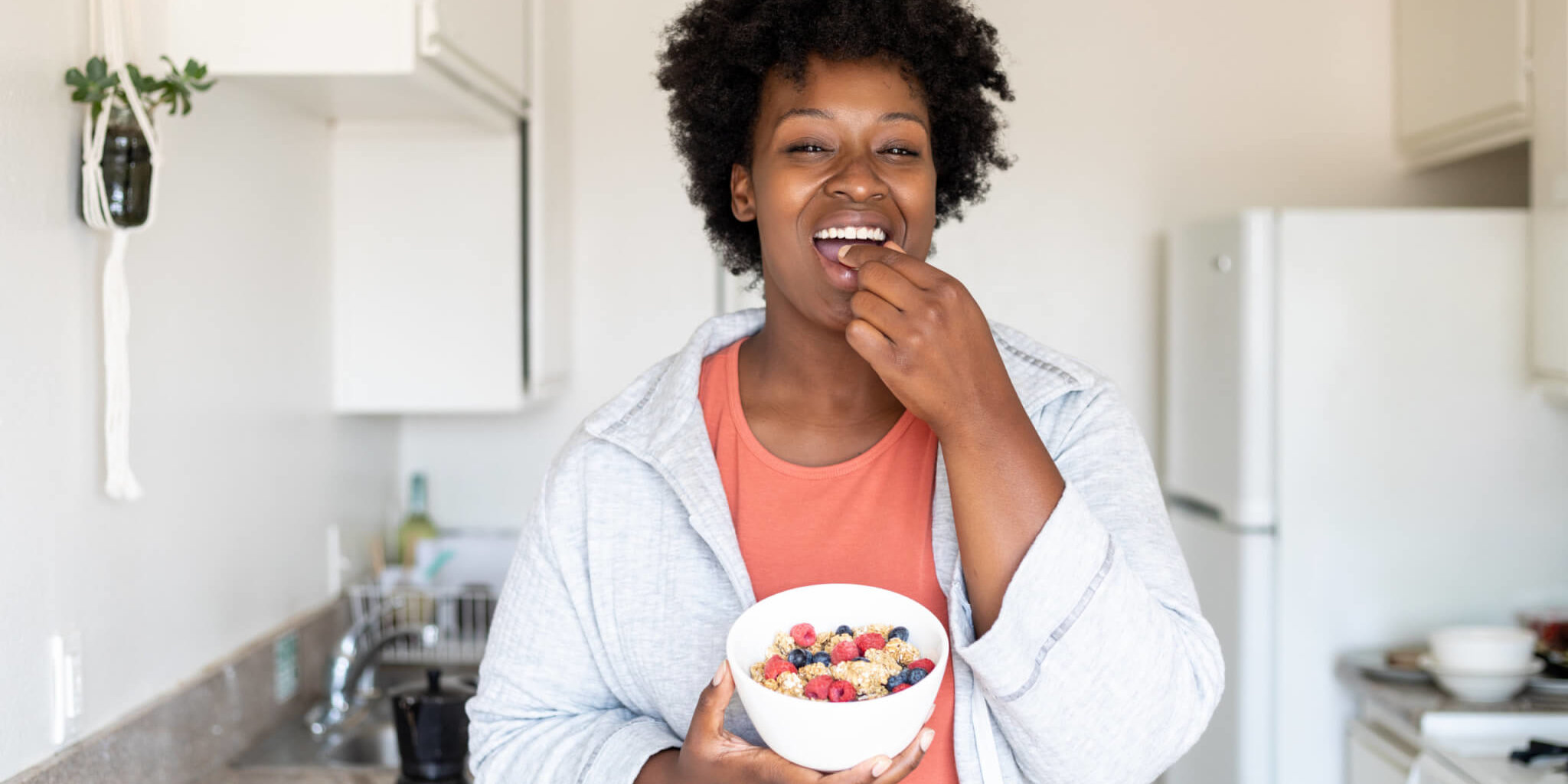Blood sugar is the sugar or glucose that travels throughout every part of your body 24/7, and it provides energy to every cell. The count or level of your blood sugar changes every second to adjust for your cells’ needs, your meals, your activity, stress, and sleep.
Healthy vs Unhealthy Blood Sugar Levels
A healthy or normal blood sugar can vary slightly up and down, but it shouldn’t spike too high or drop too low. The carbohydrates in our foods are broken down to their most simple form, which is glucose. This is the same glucose that travels throughout the body and gives our cells energy. After a balanced meal, the body absorbs and disperses the meal’s carbohydrates slowly so that you have a balanced blood sugar and optimum energy for 3–6 hours after your meal. But if the meal is unbalanced with too many quick-absorbing carbs, then the glucose floods the bloodstream causing a big spike in our blood sugar levels. To bring the blood sugar down quickly, our body compensates drastically. Unfortunately, this drastic process often drops your blood sugar too low, which triggers your brain to think you need more food to bring your blood sugar to normal; in other words, we get cravings or we may experience fatigue and poor concentration. Over time, when eating an unbalanced diet, this high-to-low blood sugar cycle causes a lot of stress on the body and it is challenging to maintain a healthy weight. The spikes and drops stress and cause damage to most systems in the body, which is one of the factors that can lead to type 2 diabetes. (1)
So, to summarize, blood sugar is another word for glucose, which is energy for our cells, and we want it to be as balanced as possible. Blood sugar that is too high or too low causes stress to our cells, and over time if your body stays stressed, it can negatively impact your health.
How to Balance Your Blood Sugar
- Test blood sugar regularly. Chat with your health care professional about the appropriate cadence to test your blood sugar levels.
- Eat a whole food diet. The foods we eat significantly and directly impact our blood sugar every day. Carbohydrates aren’t the only nutrients that impact our blood sugar, but they are the most impactful. So, let’s focus on carbs to keep it simple.
- A diet with more than 50% of its carbs made up of whole grains helps support a balanced blood sugar since whole grains are broken down and absorbed slowly. This means they don’t spike or drop our blood sugar levels drastically.
- Limit processed carbohydrates, which you get with packaged or fast food meals.
- Choose quality over quantity; carbohydrates aren’t bad, even though they get a bad reputation. Carbohydrates are 100% necessary for living, and we just need to make sure we are choosing quality carbs that fuel and support our cells with even energy.
- Stay active and take it easy. Being active and maintaining a lower level of stress both support a balanced blood sugar. Being active also uses blood sugar so that it doesn’t get too high and helps our cells use glucose for energy. Too much stress causes our body to release cortisol (a stress hormone), triggering the release of glucose into our bloodstream, and in turn, our blood sugar can run too high. To avoid this, make sure you are prioritizing physical activity and stress-lowering activities every day.
Final Sum Up
Eating the right foods, staying active, and maintaining a healthy stress level supports a balanced blood sugar. Why is this important? A balanced blood sugar gives us the energy we need to live a healthy and active life, helps keep cravings at bay and maintain a healthy weight, and allows us to optimize our future health.
 Sarah is the Shaklee Pure Performance Team dietitian/nutritionist. She is also a two-time competitor for the USA in the Summer Games, participating in the 10-meter Air Rifle event in 2012 and 2016. Her experience as an elite athlete and her status as a Registered Dietitian Nutritionist (RDN) and Licensed Nutritionist (LN), make her perfectly suited to consult with Shaklee athletes on their nutritional needs. Sarah graduated from Texas Christian University in Fort Worth, Texas with a BS in Nutrition in 2013, and then earned an MBA in Entrepreneurship and Healthcare Management. She specializes in weight loss, improved sport performance, diabetes prevention, heart health, healthy aging, smoking cessation, and performance goals. Her hobbies include church ministries, mountaineering, physical fitness, and gardening.
Sarah is the Shaklee Pure Performance Team dietitian/nutritionist. She is also a two-time competitor for the USA in the Summer Games, participating in the 10-meter Air Rifle event in 2012 and 2016. Her experience as an elite athlete and her status as a Registered Dietitian Nutritionist (RDN) and Licensed Nutritionist (LN), make her perfectly suited to consult with Shaklee athletes on their nutritional needs. Sarah graduated from Texas Christian University in Fort Worth, Texas with a BS in Nutrition in 2013, and then earned an MBA in Entrepreneurship and Healthcare Management. She specializes in weight loss, improved sport performance, diabetes prevention, heart health, healthy aging, smoking cessation, and performance goals. Her hobbies include church ministries, mountaineering, physical fitness, and gardening.






